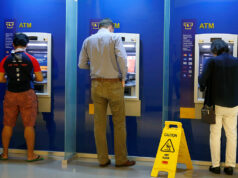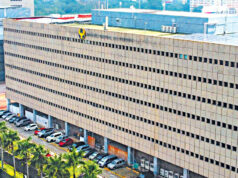Understanding development models
Development is generally defined as progress, a change from one state to a better state. Not all change will qualify as development. The change must be reasonably rapid, visible and substantive. Also, development will only make sense if it is capable of being measured, qualitatively or quantitatively. As finance specialists will attest, what cannot be measured cannot be controlled.
The traditional view of development focuses on the economic sphere. It has been viewed as the capacity of a national economy, whose initial economic condition has been more or less static for a long time, to generate rapid and sustained annual increase. Hence, it is the ability of a nation to expand its outputs at a rate faster than the growth of its population. The key metrics therefore are gross national product (GNP)/gross domestic product (GDP) growth, more specifically growth in income per capita by way of GNP/GDP. The key assumption is that rapid growth in overall and per capita GNP/GDP will “trickle down” to the masses in the form of jobs and other economic opportunities. The primary objective is thus aggregate growth.
The Philippine experience clearly shows the inadequacy of this model. Recent BusinessWorld headlines characterize Philippine growth as jobless growth. Hence, redistribution of the benefits with growth, with attention to who benefits, deserves primary consideration. Redistribution is measured in terms of actual reduction or elimination of poverty, inequality and unemployment. Development must address not just ways in which societies can become more productive but should include the quality of societies which are supposed to become more productive.
This leads to a model that aims for multiple goals: economic growth, redistribution, the betterment of the human person and social inclusion. Development is about creating an environment in which people can develop their full potential and lead productive, creative lives in accord with their needs and interests. Economic growth is only a means of enlarging people’s choices. Development is about expanding the choices people have to lead lives that they value.
For these reasons, social inclusion has gained traction. True development requires an enabling environment where policies and institutions are supportive of greater inclusiveness and equity in access to services, resources and opportunities. It aims for empowerment of the poor and marginalized groups to participate in social, economic and political life. And in today’s volatile and uncertain world, it involves greater security to cope with the chronic or sudden risks from the environment.
The highest form of development involves the basics as described previously as well as political and economic freedom. Various freedoms are covered like ability to engage in full political participation, equal access to acquire the basic necessities of life and free competition in economic markets.
Political and economic freedom are not only the end results of development but are enabling measures to achieve development. Economic success should not be measured solely on the basis of income generation. One must take into account the capabilities a recipient can gain to pursue desirous choices from such income.
From a wholistic perspective, development therefore represents progress that is substantive, shared, inclusive and with positive impact on the human person, on society and on the planet. Given this broad and expanded view development must revolve around the five critical concerns. One, create productive opportunities. Two, empower or enable people to participate in these opportunities. Three, expand the array of choices. Four, ensure equality of access and non-discrimination wherever and whenever people choose to participate. And five, ensure that institutions practice good governance and are responsive to the new demands of climate change and stewardship of the environment.
The multi-faceted nature of development is appropriately captured in the five principles of the United Nations’ adopted Sustainable Development Goals — people, planet, prosperity, partnership and peace. The people objective aims to end hunger in all forms and ensure dignity and equality. Planet is for protection of the planet’s natural resources and climate for future generations. Prosperity aims to ensure prosperous and fulfilling lives in harmony with nature. Partnership is for implementing the agenda through a solid global partnership. And peace aims to foster peaceful, just and inclusive societies.
Development is a broad and comprehensive concept with economic, human, social and political dimensions. Not many subscribe to all its facets. As a country still striving for true development, we can only hope our leaders, present and in the future, will be broad-minded enough to embrace these dimensions and not be short-sighted to focus only in limited features of the development aspiration.
Benel D. Lagua is Executive Vice President at the Development Bank of the Philippines. He is an active FINEX member and a long time advocate of risk-based lending for SMEs. The views expressed herein are his own and does not necessarily reflect the opinion of his office as well as FINEX.



